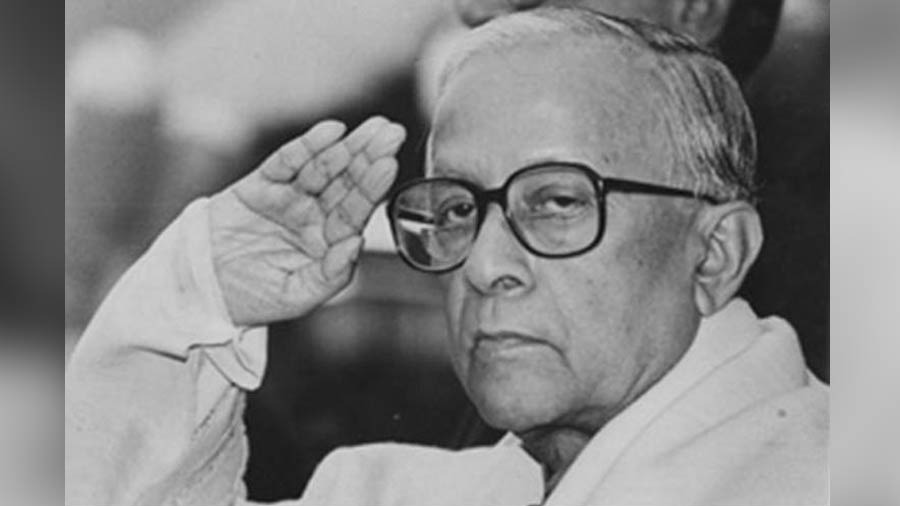Writing about Indian politics is always a daunting task, not least because of the complexity of the canvas. It becomes more complex when it’s about some individuals who in their own way have left a lasting impression. Where the attempt becomes even more difficult is when those being written about have moved on, because the dead cannot speak for themselves.
Rasheed Kidwai’s Leaders, Politicians, Citizens tells the stories of 50 such prominent individuals who shaped the country’s political history over the past several decades. The list, which cuts across ideologies and party affiliations, includes charismatic swashbucklers like Sheikh Abdullah, astute game-changers like P.V. Narasimha Rao, mavericks like Chandraswami and the irrepressible bandit queen-turned-MP Phoolan Devi. Each profile dwells upon the individual’s legacy along with personal histories and anecdotes, capturing the person’s essence while never being judgemental.
With the author’s consent, My Kolkata brings readers excerpts from one such profile — of Jyoti Basu.
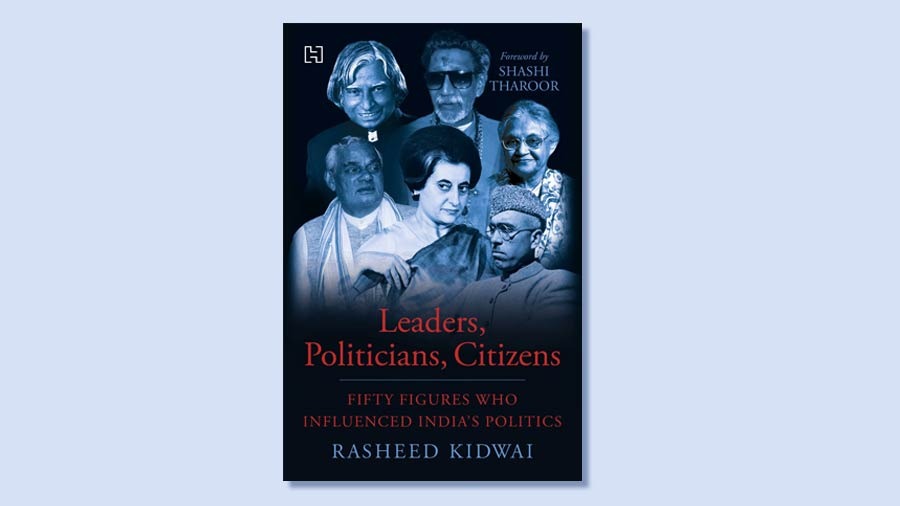
Jyoti Basu
The throne was on offer. He himself was willing. But his party colleagues wouldn’t let him occupy it. The year was 1996. Jyoti Basu had come within a whisker of becoming India’s first communist prime minister, only to be denied the opportunity by the party he had founded. The CPM politburo nixed the proposal, believing that his continuation as the chief minister of Bengal was more important than leading a rainbow coalition of centrist and Left-leaning parties at the Centre. A dejected Basu had gone public, terming the politburo’s decision a ‘historic’ blunder. That was, perhaps, the only time Basu broke his party’s code of discipline. A lesser man might have invited censure but Basu was too tall a leader to be hauled up by the party. In any case, subsequent events would prove him right….
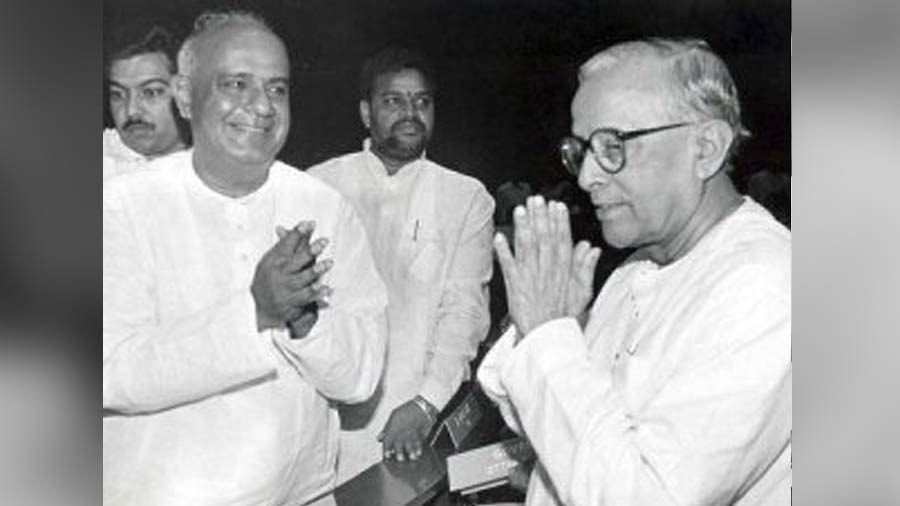
Jyoti Basu with H.D. Deve Gowda in New Delhi in 1996 Image tweeted by @jds_news/twitter
*************
Some political observers believe that Basu was in the same league as Sardar Vallabhbhai Patel and Pranab Mukherjee — great prime ministers India never had. There are also many who would disagree with such an assessment, including those from Bengal who even today, two decades after Basu withdrew from public life, cite the eastern state’s lack of development under his rule. But despite such polarised viewpoints, the fact remains that Basu, a qualified barrister, was a legend in his lifetime, a Marxist who was equally at home with bourgeois democracy and remained the longest-serving chief minister of any Indian state till Pawan Kumar Chamling of the tiny hill state of Sikkim broke his 23-year record at the helm….
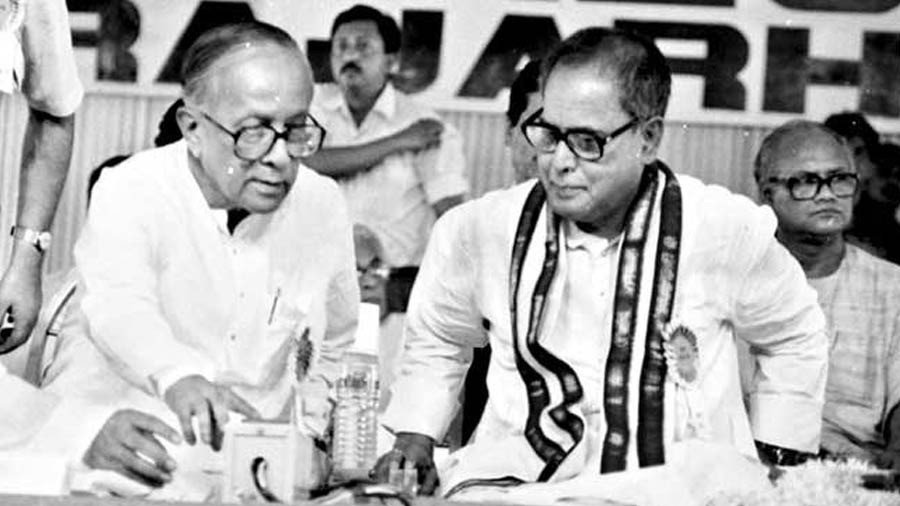
Jyoti Basu and Pranab Mukherjee TT archives
************
Gopalkrishna Gandhi, a former diplomat who later served as Bengal’s governor, recalls an incident when the otherwise reticent Basu opened up while delivering a lecture in 1993. Gandhi was then serving as director of the Nehru Centre in London, which had organised a commemoration of the 200th year of Charles Cornwallis’s Permanent Settlement. Basu was the chief speaker. “His head buried in the text, he read in an unfluctuating timbre and tone from a prepared script. And as he progressed from page to page of the closely typed document I could see many in the audience ‘switching off’,” Gandhi recalls.
Basu too had sensed the disconnect and stopped midway. Gandhi says: “[L]ooking up through his spectacles, Basu said, ‘You can see I am reading this out. It has been written for me by an expert who knows all these things. I do not know all this myself. I am also learning as I read this. You see, for most of my life I have been among the people, with little time to read or study.’” The audience burst into applause in appreciation of the candour of this man who had shaped history, while most of the listeners had only read history and some had written on aspects of it.
It was a comment typical of the man who had learnt through nearly half a century of experience. Basu was adept at reading the public’s pulse, hardly surprising for someone who had begun his political career as a 30-something trade union leader and reached a position where few, if any, could challenge his authority….
**************
Early political activism
By early 1944, Basu was actively involved with the trade and railway unions of Bengal and had become general secretary of the Bengal Nagpur Railway Workers’ Union. This was a period that coincided with his involvement with the then banned Communist Party of India (CPI), despite strong resistance from his parents. The British had declared the CPI ‘illegal’ after the Meerut Conspiracy case of 1929. Leading communists such as Muzaffar Ahmad, S.A. Dange, S.V. Ghate, Dr G. Adhikari, P.C. Joshi, S.S. Mirajkar, Shaukat Usmani and Philip Spratt had been arrested on charges of conspiracy to overthrow the British Government of India through strikes and other militant methods. Basu’s main task was to maintain links with leaders who had gone underground and provide them with shelter and collect subscriptions at secret meetings.
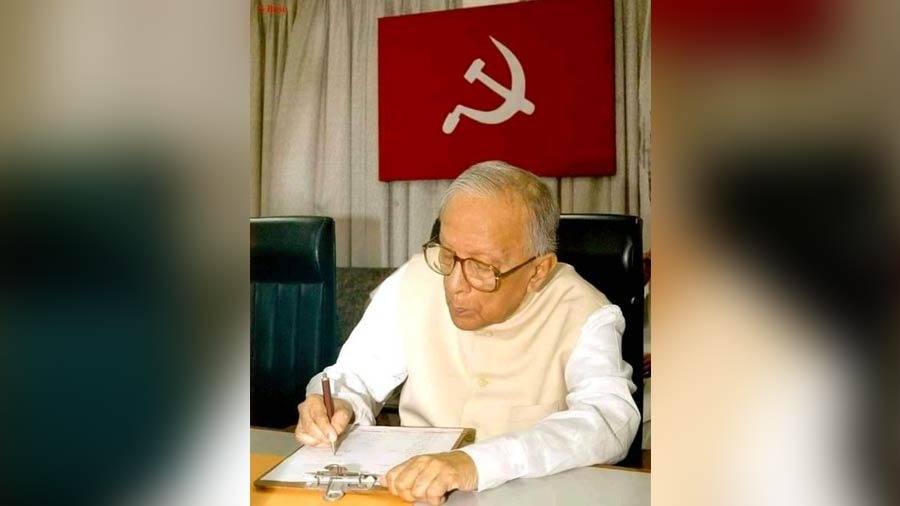
‘…the Left did not always approve of his decisions but that hardly deterred him from charting his own course….’ Image tweeted by @SDey83/Twitter
The transition from secret grassroots activism to electoral politics would take only two years. By 1946, Basu had been elected to the Bengal Legislative Council in an electoral college vote from the railway employees’ constituency. It would be the beginning of an extended journey.
By the time he stepped back from power politics and the hurly-burly of the electoral arena and into retirement over half a century later, Basu had earned a host of labels, some of them seemingly contradictory: ‘sahib in a dhoti’, ‘bhadralok’, ‘pragmatic patriarch’, ‘Marxist by conviction, liberal democrat in practice’, ‘mass leader and recluse’. Basu remained a bit of all this throughout his life. He was an unconventional politician and the Left did not always approve of his decisions but that hardly deterred him from charting his own course….
**************
‘They had no other prime minister in view’
In May 2004, Basu would explain why he had called his party’s decision a historic blunder. “Yes, I still think it was a historic blunder,” he said while speaking to Shekhar Gupta, then editor of The Indian Express, on NDTV’s Walk The Talk show. He then added: “Why historic? Because such an opportunity does not come. History does not give such opportunity. Knowing who I am — a Marxist, a communist, in the party here, for so many years I have been in politics, they invited me because they had no other prime minister in view. So we thought that even if we last for one year in that coalition with myself as the prime minister and our party joining it, then people would understand backward sections. In many places, they don’t even know what we are all about.”
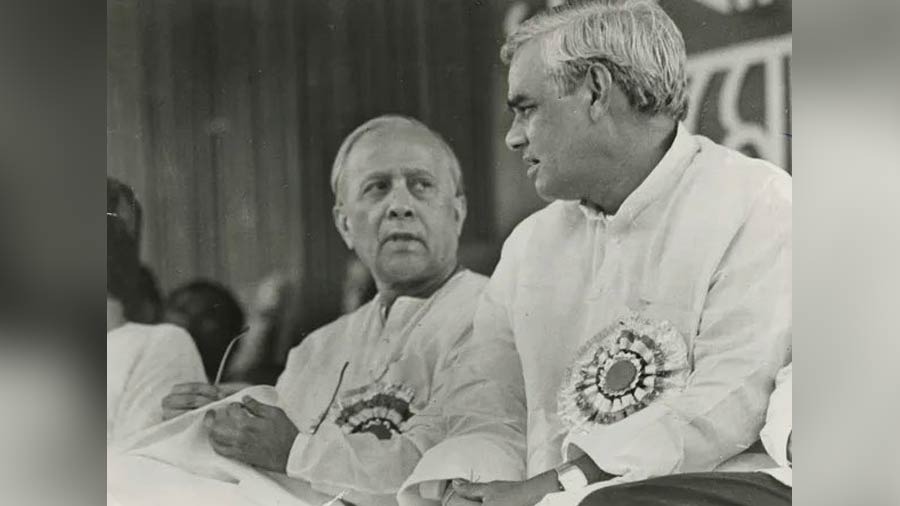
Jyoti Basu and Atal Bihari Vajpayee Tweeted by @alok_bhatt
